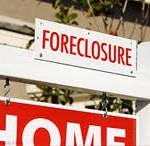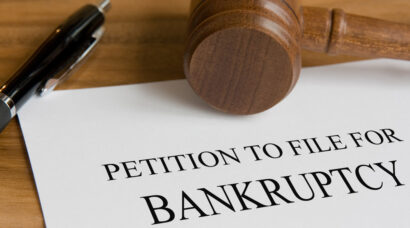
If one of the parties to a divorce action files for divorce, can he or she later file bankruptcy during the course of the divorce? The answer to this question is yes. Now let’s change the circumstances a bit. A husband and wife are involved in a divorce and during the course of the divorce, the husband is ordered by the court to make mortgage payments. Unfortunately, he falls behind in the mortgage payments. Is filing for bankruptcy the best route to stop the house from being foreclosed upon? The answer to this question in many instances is yes.
In a Chapter 13 bankruptcy, the debtor sets up a plan to reorganize his or her debts. The plan is designed to bring the debtor up to date on his or her debts during a period of three to five years. The amount of the payment pursuant to the bankruptcy plan is based on the debtor’s income.
Debts are classified into various types within the plan. Unsecured creditors, such as debts related to credit cards, may be paid on a percentage of what is owed. Interest and penalty payments to these creditors are eliminated in the plan.
Mortgage Payments
Secured creditors, such as mortgage holders on real estate, are paid 100% of what they are owed under the plan. Banks holding mortgages who have refused to accept payments from the debtors are now forced to accept mortgage payments from the debtors under the bankruptcy plan.
Bankruptcy Protection for the Spouse
Under the bankruptcy law, child support and spousal maintenance payments are non dischargeable debt. This means a father obligated in the divorce to pay spousal maintenance and child support to his wife cannot eliminate these debts. Financial obligations of the payer’s spouse, under court orders of the divorce to make mortgage or home equity line payments, are considered to be part of the spousal maintenance and child support payments and these obligations are also non dischargeable in bankruptcy.
Chapter 13 bankruptcies can successfully be utilized to give a spouse who has obligations to make mortgage payments and pay spousal maintenance and/or child support an opportunity to come current in these obligations, save the home from being sold in foreclosure and comply with the state court order.
The foreclosure defense lawyers at the Law Offices of Schlissel DeCorpo have been representing individuals with financial difficulties for more than three decades. Our office helps our clients prepare mortgage modification applications. We also deal with mortgage modification programs that fail to meet our clients’ needs. We defend foreclosure lawsuits for our clients. We attend foreclosure court conferences, litigate defective foreclosure lawsuits, predatory lending issues, defective mortgages and bad faith on behalf of financial institutions. We also assist our clients with other types of real estate litigation. Should bankruptcy be the route to dealing with our clients’ problems, we file both Chapter 7 and Chapter 13 bankruptcies on behalf of our clients. Feel free to call us for a free consultation at 1-800-344-6431, 516-561-6645 or 718-350-2802.













